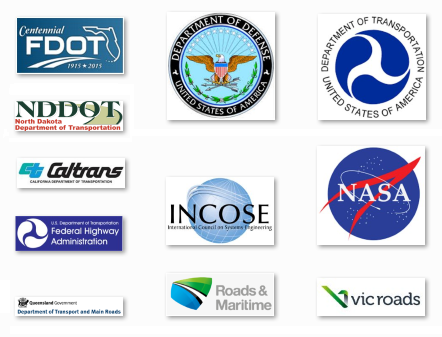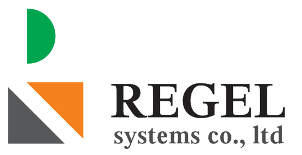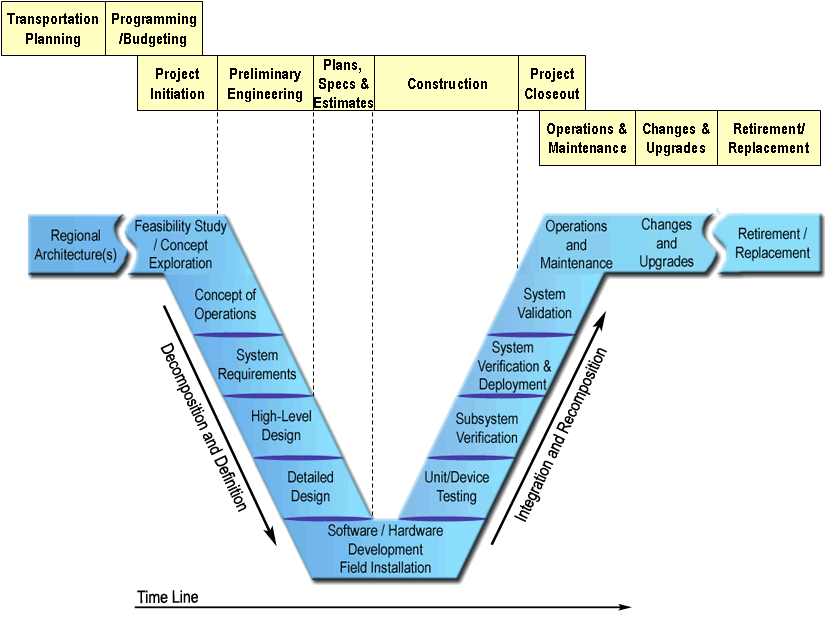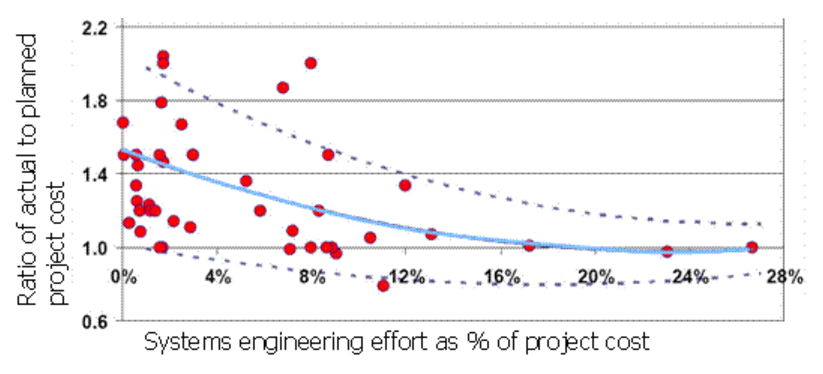What is Systems Engineering ?
Systems Engineering is an interdisciplinary approach and means to enable the realization of successful systems. It focuses on defining customer needs and required functionality early in the development cycle, documenting requirements, then proceeding with design synthesis and system validation while considering the complete problem:
- Operations
- Performance
- Cost & Schedule
- Test
- Training & Support
- Manufacturing
- Disposal
Systems Engineering integrates all the disciplines and specialty groups into a team effort forming a structured development process that proceeds from concept to production to operation. Systems Engineering considers both the business and the technical needs of all customers with the goal of providing a quality product that meets the user needs.
Systems Engineering as an Extension of the Traditional Project Life Cycle
Value of Systems Engineering
Although ITS projects come in many shapes and sizes, they all use technology (computers, communications, sensors, etc.) and frequently include the exchange of information, either within a system or between systems. The technology and integration that sets ITS projects apart also creates challenges for the ITS project manager. What every ITS project manager wants is a successful result at the end of the project, with “success” measured by:
- how well the implementation satisfies the needs of the people who use it, and
- how closely the project stayed within the budgeted cost and schedule.
Systems engineering reduces the risk of schedule and cost overruns and increases the likelihood that the implementation will meet the user’s needs. Other benefits include:
- improved stakeholder participation
- more adaptable, resilient systems
- verified functionality and fewer defects
- higher level of reuse from one project to the next, and
- better documentation.
Several studies have shown that good systems engineering results in better cost and schedule performance. Studies have been performed by the International Council of Systems Engineering (INCOSE), Boeing, and IBM, among others. Figure 1 shows the results of an INCOSE study that collected both planned and actual project and systems engineering cost data for 44 projects. The survey indicated that investing in systems engineering did improve project cost performance. The responses indicated a 50% overrun on average without systems engineering and a clear trend toward better cost performance results with systems engineering.
Systems Engineering improves Project Cost Performance
Application of Systems Engineering
Over the past 30 years, the continuing development and application of systems engineering methods has enabled the unprecedented growth in projects success across private, public, and government sectors. The list below shows some of the international organisations where systems engineering methodology has been widely used with success.



